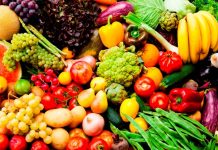Kenya’s small scale farmers hit by the European Union’s stringent food safety issues arising from high agrochemical residue levels have now turned to using tunnel greenhouses that do not require use of much chemicals and offer better vegetable yields.
The European Union is Kenya’s biggest market for vegetables grown by large and small scale farmers. The bloc imports about 90 percent of all vegetables destined for export.
But stringent food safety standards over high agrochemical residue was traced to produce sourced from small scale farmers, leading many exporters to drop the as produce suppliers.
The effect, combined with rising cost of growing the vegetables because of the increase in prices of farm inputs and reduced demand because of the eurozone crisis have knocked-out some farmers from growing the vegetables for export, leading to drop in the amount of vegetables Kenya exports to the European Union.
According to the Kenya Horticulture Competitiveness Project (KHCP), a project that helps small scale farmers increase production of horticulture crops, the sector has experienced tough times in 2012 due to a rapid rise in production costs, depressed prices in the major European markets and lack of procurement discipline by farmers and exporters.
Other factors affecting the sector have been the vulnerability of crops grown in open fields facing drought, excessive rainfall, and pests and diseases, which limit crop yields and quality.
Data from KHCP indicates that overall exports of vegetables primarily peas and beans declined by 2.6 percent from 379 million U.S. dollars in 2011 to 369 million dollars in 2012.
“In recent months, however, the situation has worsened. The European Union has increased the level of surveillance checks due to the perception of increased food safety issues from agrochemical residue levels,” said KHCP in its latest update received on Wednesday.
As a result, Kenyan exporters have moved away from smallholder sourcing, and Kenyan exports have declined significantly.
For instance, bean sales have dropped by 25 percent in January 2013 compared to January 2012, according to the Fresh Produce and Exporters Association of Kenya (FPEAK).
KHCP said it has partnered with FPEAK to respond with a program of enabling farmers acquire and use tunnel green houses as part of farm infrastructure development.
Farmers are being trained at the Horticulture Practical Training Center (PTC) in Thika, about 50 km north of the capital Nairobi.
The support for PTC’s vegetable, fruit nursery, and flower units is delivering skills training to 15,000 farmers over the next two years.
An additional 50,000 farmers are being trained on agrochemical compliance to international standards in good agricultural practices through a network of eight “Mini-PTCs” across the country.
The project has also partnered with Vegpro (K) Ltd, a major exporter of vegetables, fruits, and flowers to Europe. Through this partnership, Vegpro is rolling out greenhouse tunnels and drip irrigation trials in pea production for 600 contracted outgrowers around the Mt. Kenya region.
The tunnels, which minimize the usage of agrochemicals and increase the crop life cycle, have shown average yield increase of 48 percent compared to open field production.
About 98 percent of the crop grown under the 0.98 hectare tunnel was marketable, compared to only 15 percent of the crop grown in open fields due to damage from hailstorms and disease infection.
Each tunnel generated an average gross income of 384 dollars compared to only 40 dollars from the open field.
To accelerate the adoption of the tunnel technology, KHCP is working closely with the U.S. Agency for International Development’s Financial Inclusion for Rural Microenterprises (FIRM) project to map the best options for finance packages suited to farmer’s cash flow.
The intention is to increase smallholders’ ability to compete in the global marketplace while helping the Kenyan vegetable export industry get back on track during the second half of the year.
Martha Maingi, a vegetable farmer in Thika who is contracted by an export company said the tunnel greenhouse is the answer to the challenges they have been facing growing vegetables in the open field.
There are fewer requirements for chemicals, manure and the crops are shielded from direct rainfall and sunlight. Insects that affect the vegetable crops are also minimized when tunnel greenhouse is used.
“I don’t have to be persuaded about this greenhouse technology. I have witnessed with about their importance and value. Through the tunnels, I’m earning ten times more compared to the open field, ” she said.
Kenya is expected to start exporting vegetable variety of French beans to the U.S. by November this year when necessary sanitary measures are expected to be in place following U.S. Department of Agriculture’s approval of the deal early this year.
In 2012, Kenya exported vegetables worth 164 million dollars, according to FPEAK.



















